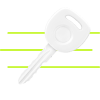Contents
- Could you tell us a little about yourself and your professional journey thus far?
- Iâve noticed that youâve had an incredible path within education, how do you feel that that has leveraged your chances as a woman entering industries like ours?
- How long have you been with the organisation, and what about the company has inspired you to stay for so long?
- What has been the highlight of your career so far?
- What do you think the key is to being a successful woman in STEM, and a successful female leader?
- What does Kindred Capital implement to create a non-biased environment to provide opportunity for all?
- How do you think we can combat the lack of confidence young girls and women have about having STEM careers?
- What advice would you give to women who would like to work in the world of fintech and STEM?
- With the rapid digitalisation of our current world, what trends and innovations are you most excited to see?
You may think that you’re experiencing the Mandela effect with the name of our series, but rest assured you’re not imagining things and it’s not a glitch in the matrix. Unlimit have rebranded our female series from ‘Females in Fintech’ to Female Voices because along our journey thus far, we’ve had the pleasure of meeting some incredible women who work in numerous industries. Whilst we’re passionate about fintech, we’re also passionate about celebrating success – in and around the industry. The new name for our series only allows us to bring more women into the limelight and knowledge share more than ever before.
Volume four of our series is an exciting conversation with Kindred Capital’s General Partner, Maria Palma. Having worked in an array of STEM companies and exceled in her education, Maria joined Unlimit to share her path, advice and insight. Watch the full interview here:
Could you tell us a little about yourself and your professional journey thus far?
I’m a general partner at Kindred Capital and we’re an early-stage venture firm. We invest in a lot of start-ups at the earliest stages of their journey, often before they even have a pitch! I had a winding career which has been an incredible learning experience for me – I am originally from the US – Beaver Dam, Wisconsin, and I studied Industrial Engineering at the University of Wisconsin (go Badgers!!). I spent the first four years of my career in GE healthcare in supply chain operations. They have leadership programs which support switching roles for the first few years, giving me scope to manage teams in differing geographies – teaching me many skills and giving me exposure to different environments. I later realised that GE was so thoughtful about team, culture and leadership, and I learnt so much about being a better leader myself while I as there. But I also realised I was drawn to ambiguous roles that lacked structure, which was something I loved but wasn’t typical of a supply chain role in a large corporation. So, I went back to business school and pursued my MBA at Harvard. I felt like I lacked an understanding of start-ups so spent time exploring that while I was there.
I worked for a start up in Bangalore, and then moved to Brazil to work for a tech accelerator. I later navigated to the New York ecosystem, working for a start-up which scaled from 0 to 40 million in revenue. From there, I moved to into venture capital as I always loved helping founders and entrepreneurs, first at RRE in New York and then moved to London which led me to Kindred Capital.
I’ve noticed that you’ve had an incredible path within education, how do you feel that that has leveraged your chances as a woman entering industries like ours?
Even my undergrad in Industrial Engineering I owe to my mum, because she knew that there was a lack of women in STEM. So, from an early age I was going to chemistry labs, and she got me learning things ahead of time, so that I would enjoy them at school. I graduated in 2007, and at that time it was easier to get a job in the field if you had successfully completed your education. Today it’s more complicated, because you don’t necessarily need an education, especially a graduate degree, and it can be expensive to do so. People undervalue the life experience and learning experience that I got outside of traditional learning methods during my MBA.
I don’t think you need an MBA these days, but it can help increase your credibility to help make your resume/CV stand out, especially as a woman or underrepresented group. But I think that this is becoming less and less true.
How long have you been with the organisation, and what about the company has inspired you to stay for so long?
I’ve been with Kindred Capital for a year and a half, and I feel like I’ve won the lottery. I get to work with great humans and we’re trying to do venture for founders as best as we can. We share 20% of the carry of the fund with our founders and community. So, if we invest in your start-up, you get the upside of the other companies in the fund. It’s a belief in humanity, that founders best learn from each other, and Kindred wants to enable that more deeply and reward it.
It’s an incredibly diverse group of people, who want to serve founders, which resonated with me highly. I absolutely love my work, which is important as I have a 1-year-old and baby on the way – and it’d be very hard to walk out the door some days if I didn’t love what I do. I faced adversity in my journey, with people questioning my capabilities, and while you want to ignore those comments to a degree, I found that calibrating to find out why they think that was useful. I like to find perspective in the present by asking myself what 5-year-old me and an 80-year-old me would think. And that’s how I always come to the mindset of going for it. If it sucks, you can go back to what you were doing before. There’s only one way to know.
What has been the highlight of your career so far?
I would pick things where I have grown a lot. I had to manage a number of manufacturing transfers, essentially moving operations from one country to another with a team of people where one group is essentially taking the other groups’ jobs. Building trust in that setting was hard, to the point where we screwed it up once horribly. But the next time we really nailed it, and it was a powerful lesson to me as a leader on how to build trust in the people around you. It has shaped the way I assess teams. My most enjoyable career moments are ones that push me to progress on my own path, even if I don’t enjoy it at that moment.
What do you think the key is to being a successful woman in STEM, and a successful female leader?
It’s hard to know because you’re always on your journey. You must be reflective and willing to observe yourself. It doesn’t matter if you’re a male or female – you have to understand your strengths and weaknesses, to build upon them. Asking for feedback to support your path to self-improvement and there’s feedback you take, and some you don’t. But if you aren’t asking the questions and seeing how you’re being perceived, then you can’t find what you want to change.
What does Kindred Capital implement to create a non-biased environment to provide opportunity for all?
I ended up founding a group called NYC Blend which was a non-profit with other venture capital firms to help underrepresented founders get access to venture. There’s a similar programme in Europe which I’ve joined, called Emerge. I think it’s really important in venture capital to find ways to access dealflow that has a more diverse group of founders, because the natural pipeline isn’t very. The way those founders are assessed is also important. In the Emerge Programme, we were given unbiased training on how to ask questions to underrepresented founders.
We see a lot of gender stats quoted, but there’s a lot of other categories which are abysmally represented (LGBTQ+, people of colour, disabled and refugee founders) in venture funding statistics. We must take an onus on us and make sure we’re assessing people in a nonbiased way and creating the right environment for our team to enable dialogue where we can safely push back on each other. Kindred offers us a coach who provides feedback and makes us reflect on the best way to bring our best ‘self’ to work.
How do you think we can combat the lack of confidence young girls and women have about having STEM careers?
I have self-doubt all the time, even though I have confidence. You may always question yourself, but it’s important to evaluate what dialogue is helpful in your head. Some self-doubt is a good thing because you question yourself and challenge your ideas. But for those who suffer from a debilitating level of imposter syndrome or lack of confidence, I would suggest looking into real support because sometimes that is needed. I have personally found that to be the case in many moments, such as when I suffered from post partum anxiety after the birth of my son.
Finding something that you’re good at, whether it’s STEM or a hobby like painting or dancing, and exploring it tends to build confidence. It helps to put yourself in situations which can be ‘uncomfortable’, because when you figure it out you feel great. When you look back on these difficult situations in the future, you’re reminded that you can get through it.
You get one life, so take advantage of it and don’t be afraid of the ‘no’, it’s the worst thing somebody can say. We often stop ourselves from asking for things because we are afraid of the ‘no.’
What advice would you give to women who would like to work in the world of fintech and STEM?
I would encourage women to not be afraid of industries that you don’t know. Like fintech, it can sound so boring from the outside but once you’re in it, you see how it drives so much impact in our world. I found that I was inspired by the crypto space, especially in the early days, as I saw women coming in who were excited by the impact that it could have. There are so many reasons to be excited by a space, so be curious about things you don’t know. It may seem weird or scary from the outside, but it may be really compelling for you once you learn a little more.
With the rapid digitalisation of our current world, what trends and innovations are you most excited to see?
I’ve spent a lot of time in crypto and web 3i, so I think a lot about that and financial infrastructure. I also think we will see a lot more interesting climate tech in the coming years. Biotech and science-based investments is something that we’re seeing a lot of start-ups in. There’s so much innovation in these fields, and I’m excited to see the combination of big data and machine learning applied to biology.

General Partner, Kindred Capital



















